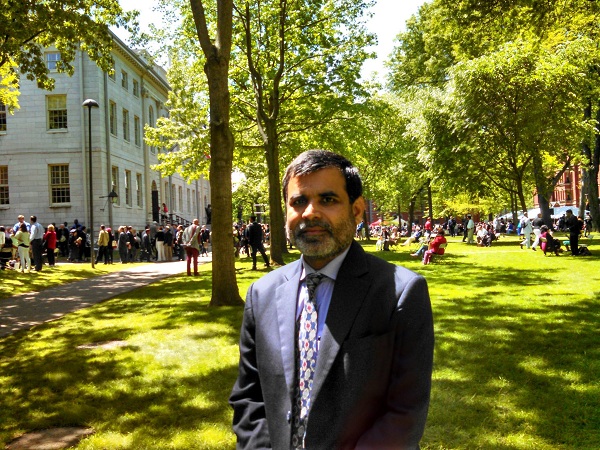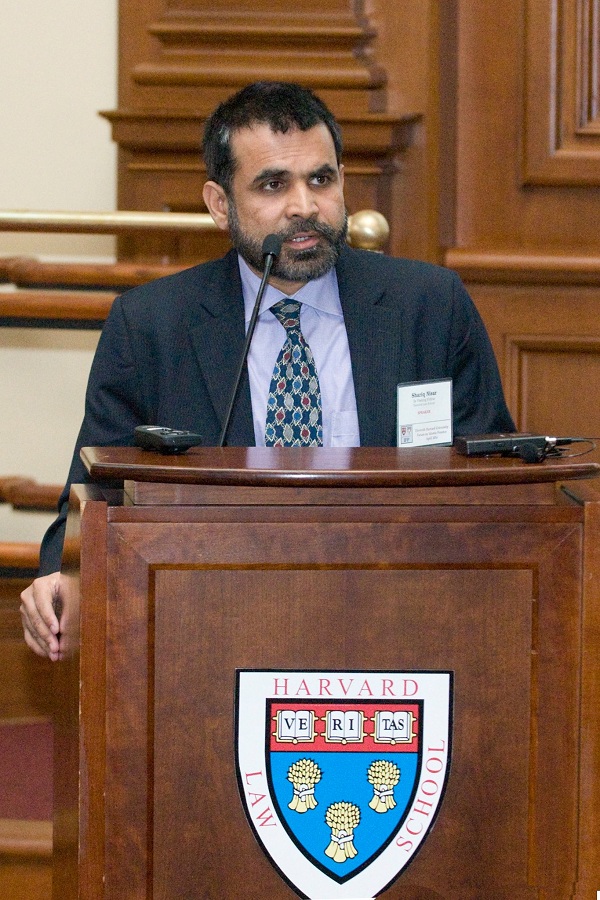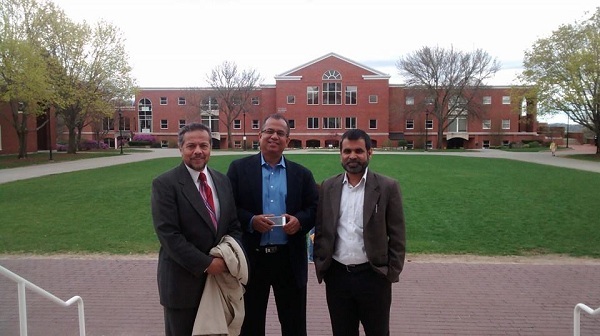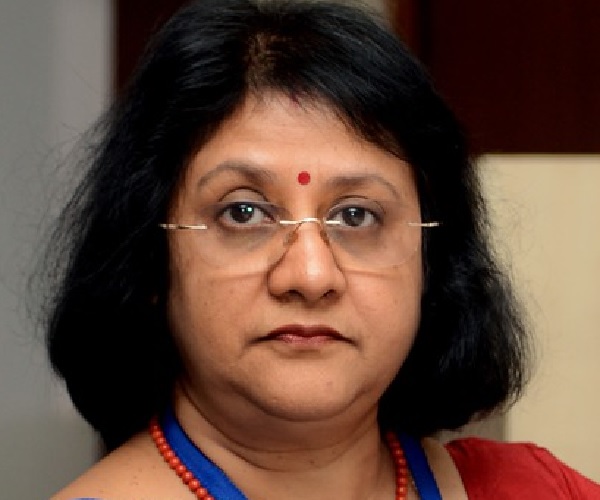Dr. Shariq Nisar earned PhD in Economics from Aligarh Muslim University, and was fellow at Harvard Law School, USA. He is one of the most active and senior professionals of Islamic finance in the country who has pioneered shariah screening of stocks in India. He has also been associated with many other pioneering efforts such as recipient of India’s first shariah realty fund, advisor of India’s first shariah mutual fund. He has structured Islamic finance courses for AligarhMuslimUniversity, a member of Board of Studies, Al Jamia Al Islamia, Kerala, and member Editorial Board, Islamic Finance Today, Sri Lanka. He is a trustee of the Institute of Islamic Economics, Hyderabad which specializes in training of shariah scholars in finance. Dr Shariq is founding member of India’s premier shariah advisory firm Tasis. Dr Shariq has been regularly invited by prestigious institutions such Harvard Law School, Islamic Development Bank and many others to speak at international conferences on Islamic finance. He Share his views with Danish Reyaz
- 1. What are the real causes of global meltdown?
This requires some elaboration. Let me try.
If you do a dissection of the current financial crisis you will see three major causes behind it, i.e. interest, speculation and gambling. In Islamic finance terminology, we call it Riba, Gharar and Mysir. All these are prohibited in Islam.
Loose monetary policy brought so much liquidity in the market that you could see banks and financial institutions literally chasing the borrowers (not for the recovery of loans but to offer them). It was a situation of too much debt chasing too few worthy borrowers. When the worthy borrowers were not available, financial institutions chased non-worthy ones, assuming that the assets against which the loans were issued would always appreciate thus taking care of any defaults in recovery. You might ask me why a bank would chase a borrower to lend money. The answer is banks create credit and therefore they want to issue as much debt as possible so that they are able to earn interest. To capture market share every bank does the same, leading to a situation where not many people are left who can really afford those loans. After the worthy borrowers comes the turn of the non-worthy ones – who are more popularly known as subprime borrowers. To earn even more interest banks repackaged the loans (the process called securitization) and sold them to financial institutions which were still left with money to buy those debts. In cases where these institutions needed some funding then an animal called Special Purpose Vehicle (SPV) was created to buy those securities.
Simultaneously on the other side of their account book these institutions needed a mechanism to mitigate the risk they undertook. In the name of risk mitigation techniques many bizarre products have come up in the market such as credit default swaps, interest rate swaps etc. This is more like betting where institutions participating in this market actually bet on the ability to meet credit obligations or interest payment capability of the financial institutions.
To further compound the matter these instruments and securities were traded at stock exchanges where people (speculators) – another kind of breed – were allowed to guess on the likely performance of these instruments and take action accordingly. If the market were to do well they would accumulate these papers, if not then they would sell. Here also margin trading (riba) and short selling (gambling) made this market highly risky (gharar). If anything were to go wrong then the market could go haywire. Many of the countries affected banned short-selling but the action was too slow and too late in coming to stop the damage.
- 2. Who is the main culprit?
It is not just one or two parties that one you can point to, as the main culprit. Everyone involved right from the financial institutions, financial products and policymakers who facilitated these have to take the blame. It is the greed and gambling (profiting at the cost of others) that has led us to the mess we are in now. It is the same situation which the Quran so graphically describes, “Those who devour Riba will not stand except as stands one whom the Evil one by his touch Hath driven to madness.” (2:275)
The irony of this whole situation is that the rich and powerful have been able to pass on the burden to the poor masses. The cost of the so-called ‘financial stability’ is being shifted onto the poor and general public, whereas when the profit were earned, they were distributed as bonuses to the executives.
- 3. Is there any threat to capitalism, due to world economic crisis?
I do not see the world from capitalistic or socialistic point of view. Both have their own merits and demerits. For me this is a collective human failure. God has warned us of this situation in no uncertain terms. We are paying the price of not heeding God’s warning of not indulging in interest and exploitation, which is there in every religion. The world is not going to stop after this crisis. What we must do is to learn from our mistakes and try to develop a system which is friendly to humanity as a whole and not just to the few in power.
- 4. What were the causes of great depression of 1929?
Supremacy of personal interest leads to unfair practices and exploitation, which in turn leads to war and disputes. That was the cause in 1929, today and will remain so in the future.
- 5. Whether sub prime crisis or big bucks paid to financial sector employees played a key role in American economic slow down?
As I have mentioned in my above answers the subprime crisis is an effect not a cause. I do not see any harm in people being rewarded for their high performances. If someone has really performed well he or she deserves to be rewarded but what has happened in the current financial crisis is that people were rewarded for defrauding and cheating, which is not wealth creation but wealth shifting from gullible investors to fraudsters.
- 6. Whether huge packages would revive the American economy?
It depends on how judiciously we spend the money. Because if we do not do that then we would be exposing ourselves to another set of problems. What I see from the current steps taken by various governments is an attempt at a quick fix, which is okay considering the magnitude of the problem. But this I strongly feel, is not going to be sufficient. This problem has built up over a long period because of the fundamental weaknesses in our system and therefore the solution for this lies in structural changes in our business policies and procedures. Exploitative and biased policies cannot lead to a just and peaceful society.
- 7. To what extent will India, China and the Gulf states be affected by global financial Crisis?
I refrain from making guesses. In the light of what I have said in above paragraphs I would like to emphasize that anybody following exploitative policies, which is the hallmark of interest based business is not going to remain aloof from the ensuing crisis. Sooner or later they are all going to be affected depending upon the level of their involvement in exploitation and injustice.
- 8. Could India achieve 9% plus GDP growth within a few years, in the backdrop of the current crisis?
No. I have no doubt that India cannot achieve this growth unless it changes it economic policy in favor of the poor who have constantly been excluded from the fruit of economic growth. Whatever growth India has achieved in the last few years is highly skewed in favor of the rich and powerful. The rich and powerful who constitute a very small portion of our total population have achieved a very high growth whereas the poor of this country who are in a majority have achieved very small growth or even in many cases no growth at all. Look at the growth rate of our agriculture on which almost 65% of our population is dependent for their livelihood. Just having access to mobile phones cannot be accepted as proof of our economic growth.








0 Comments